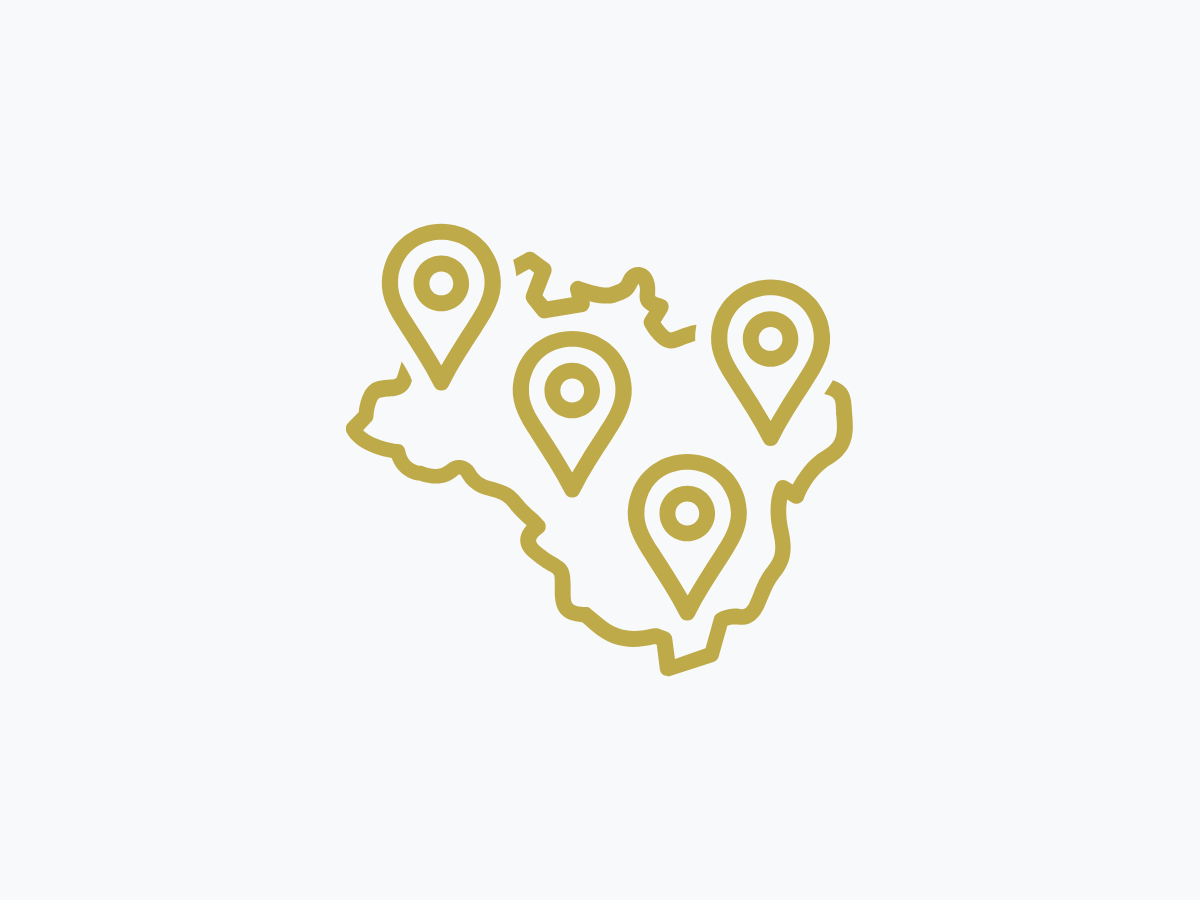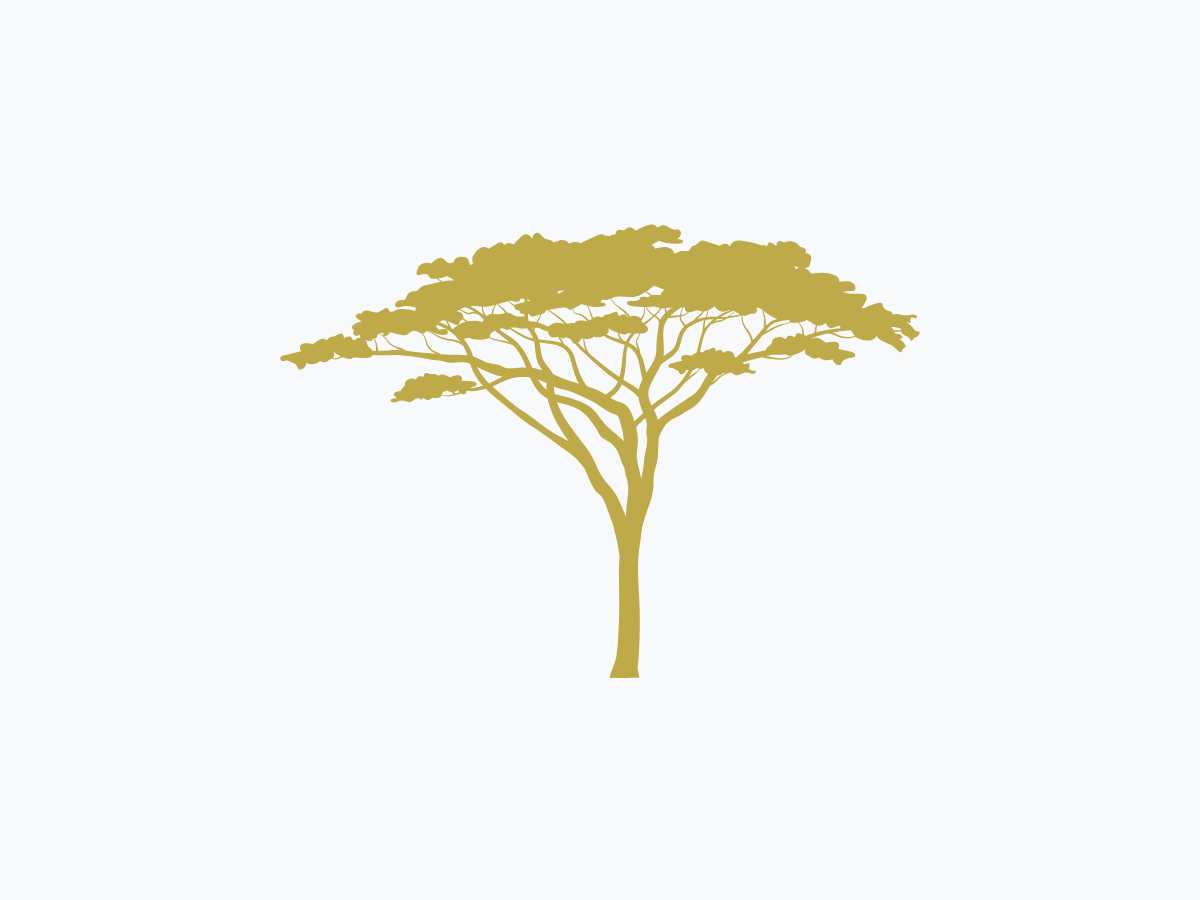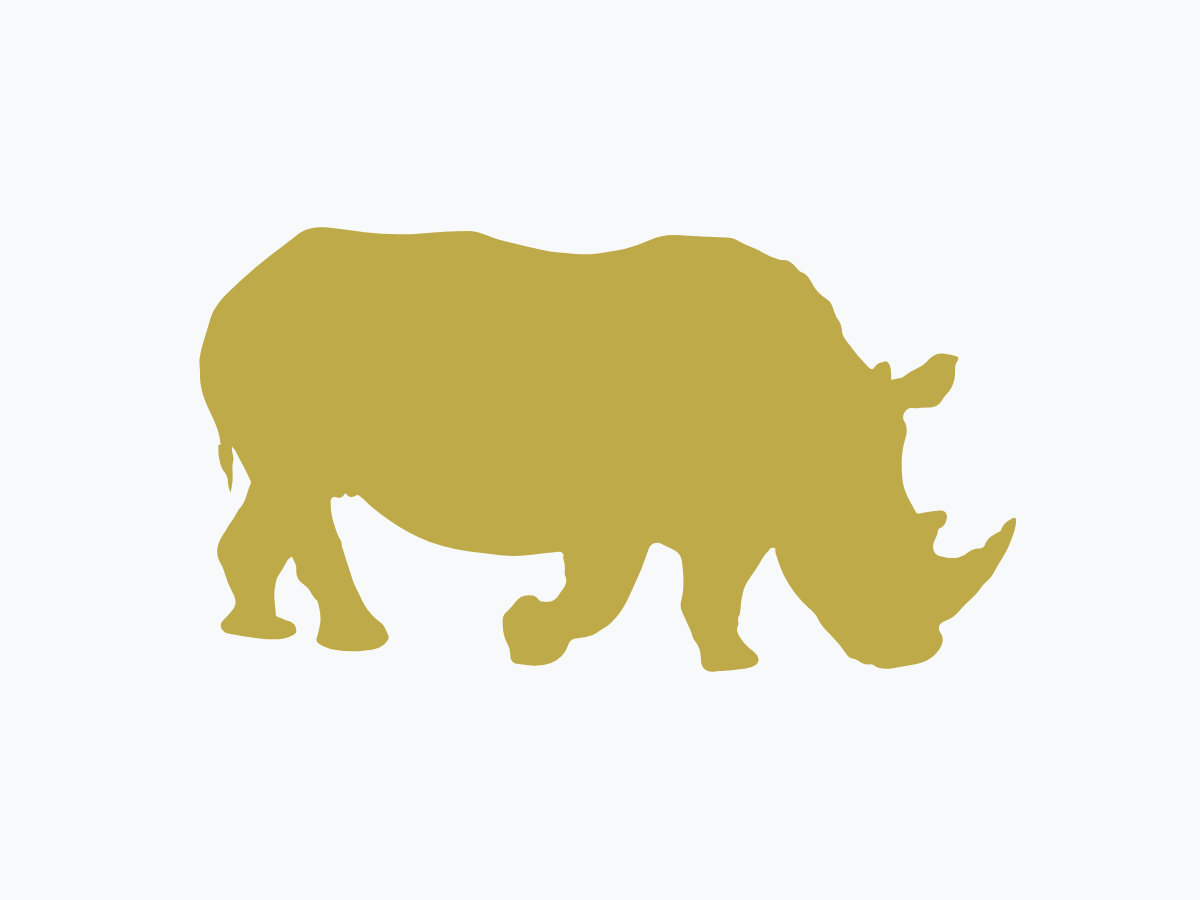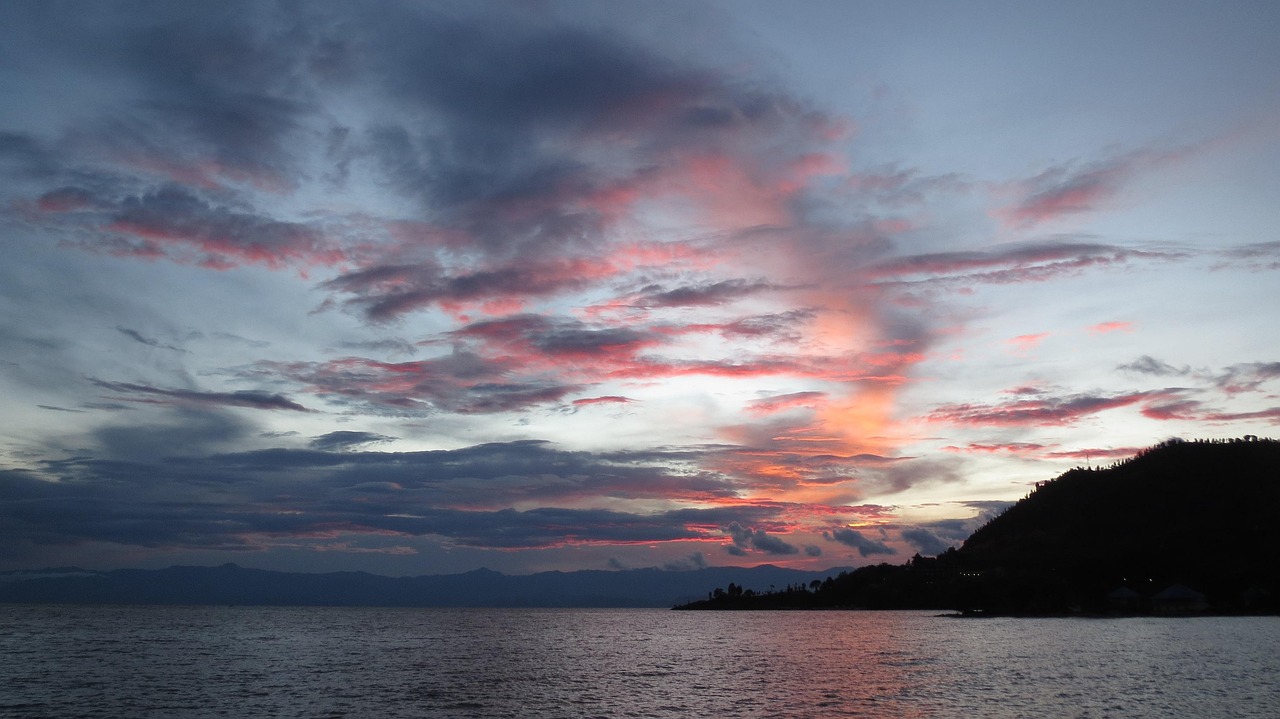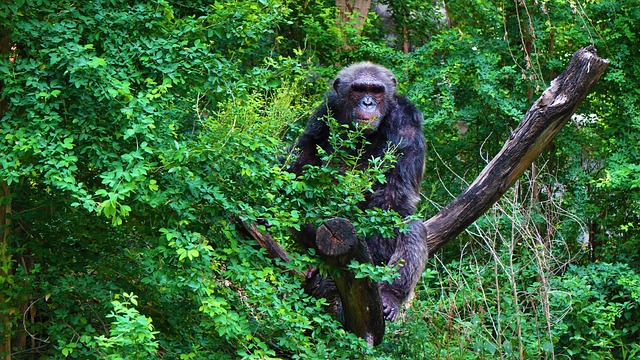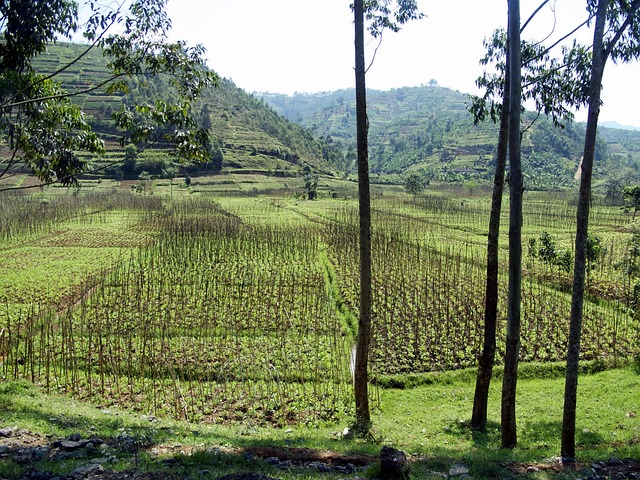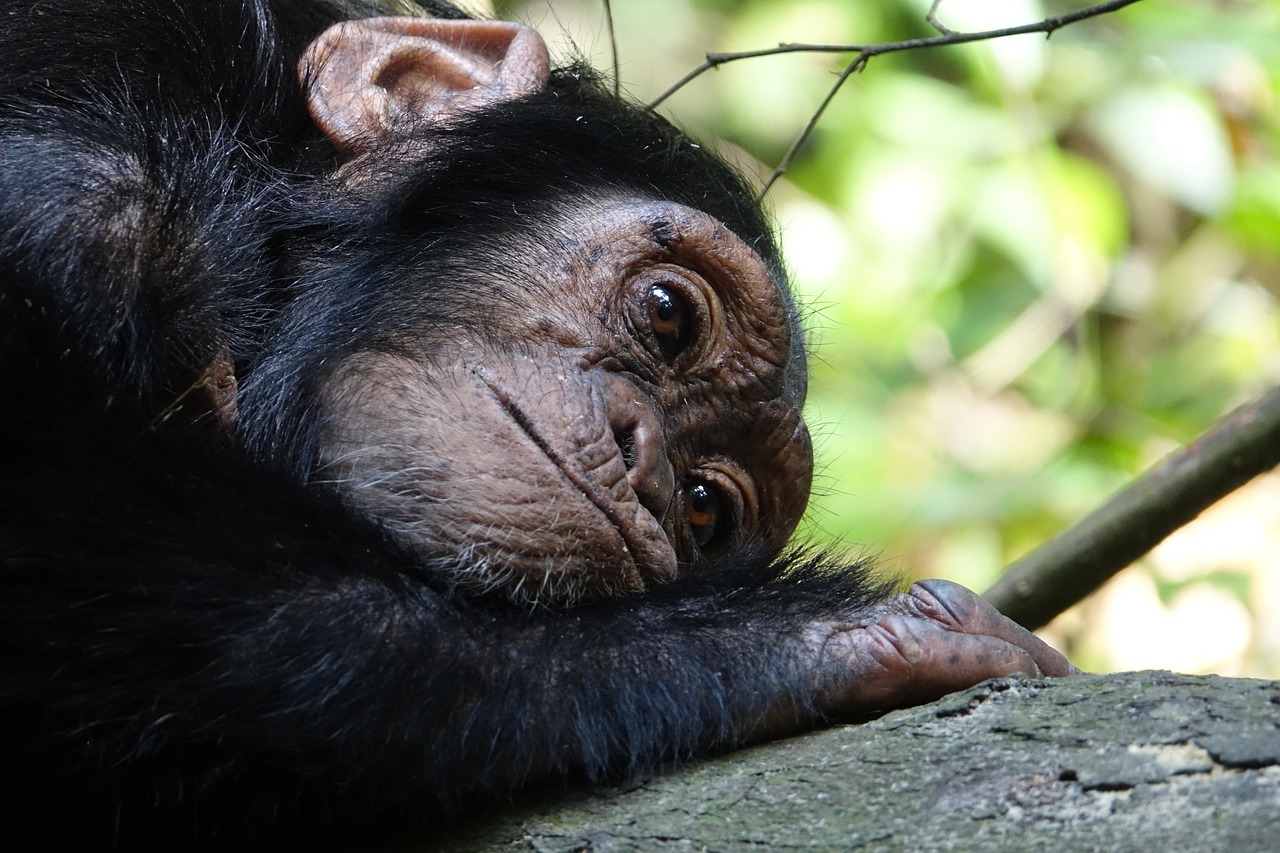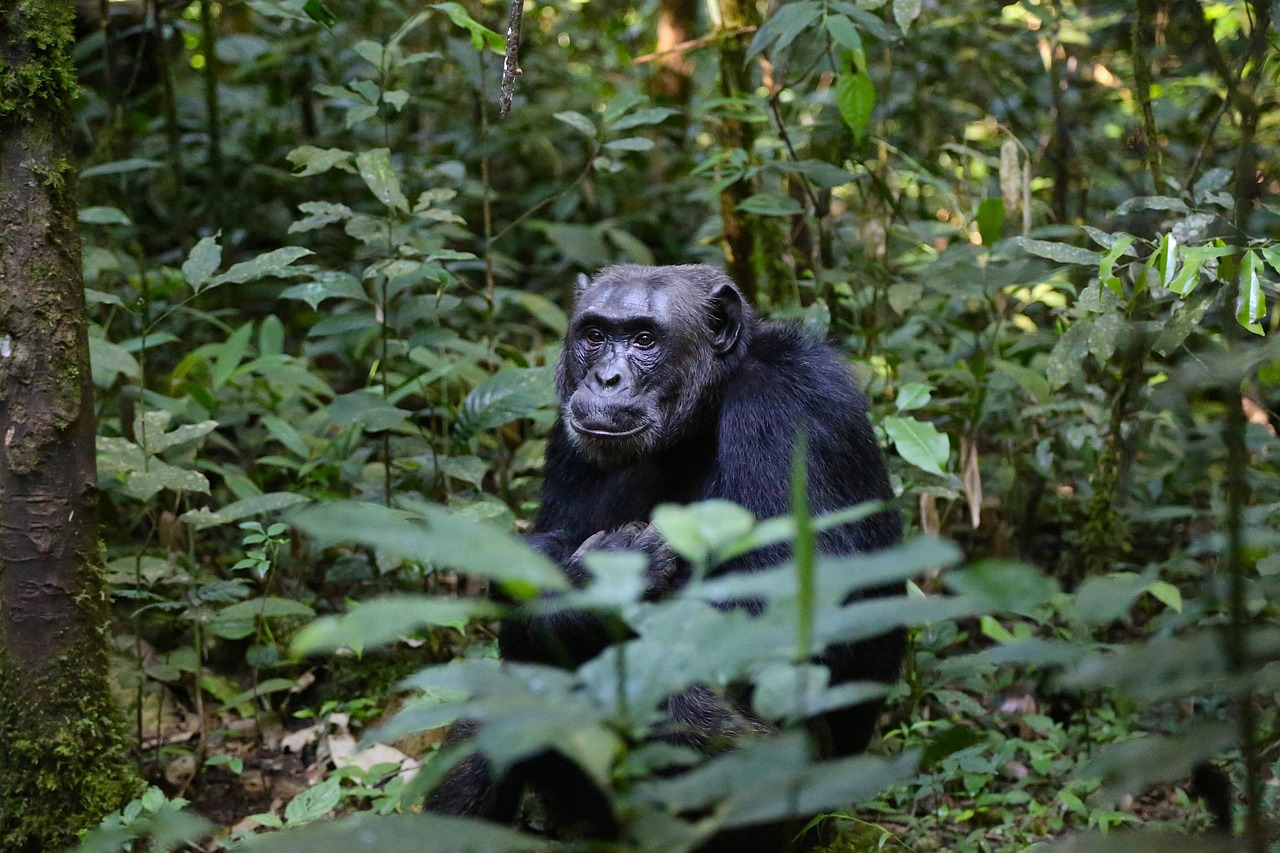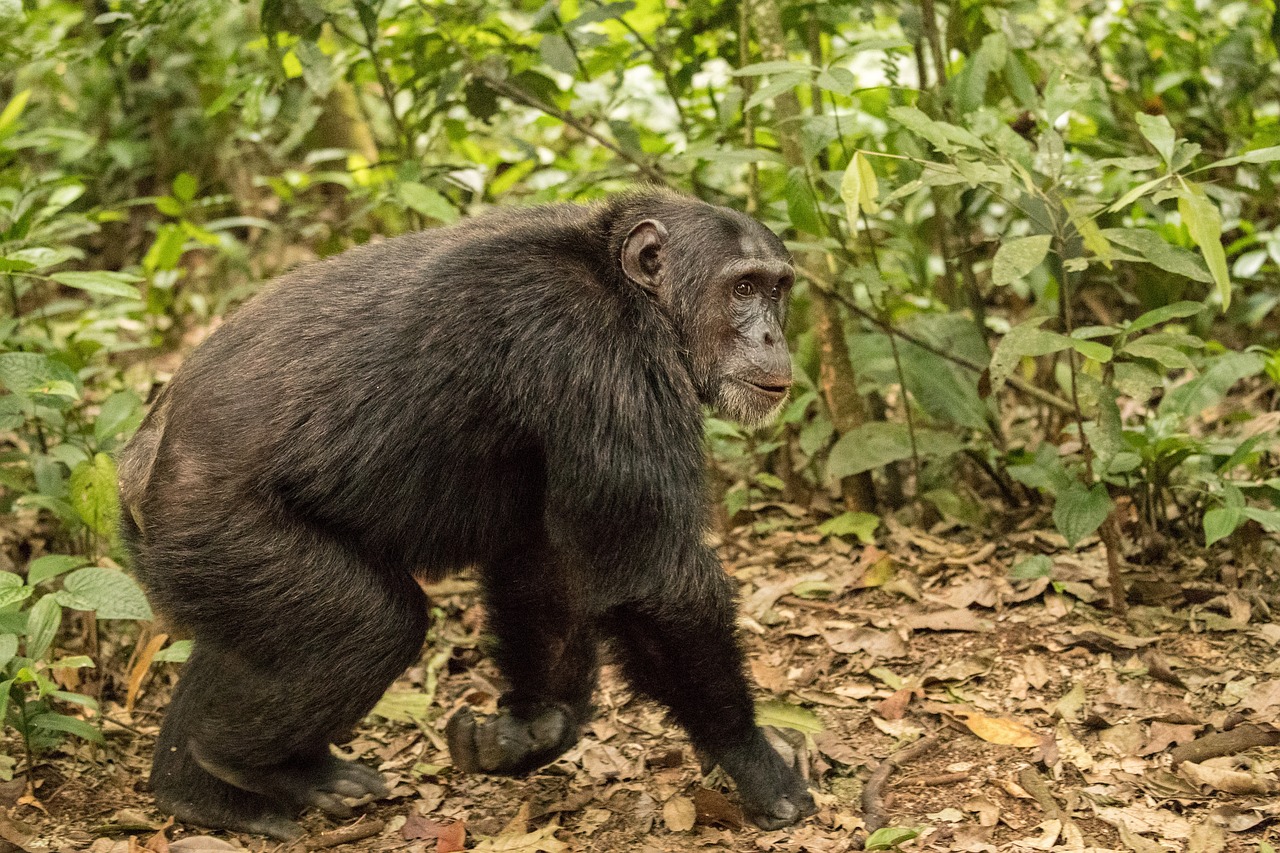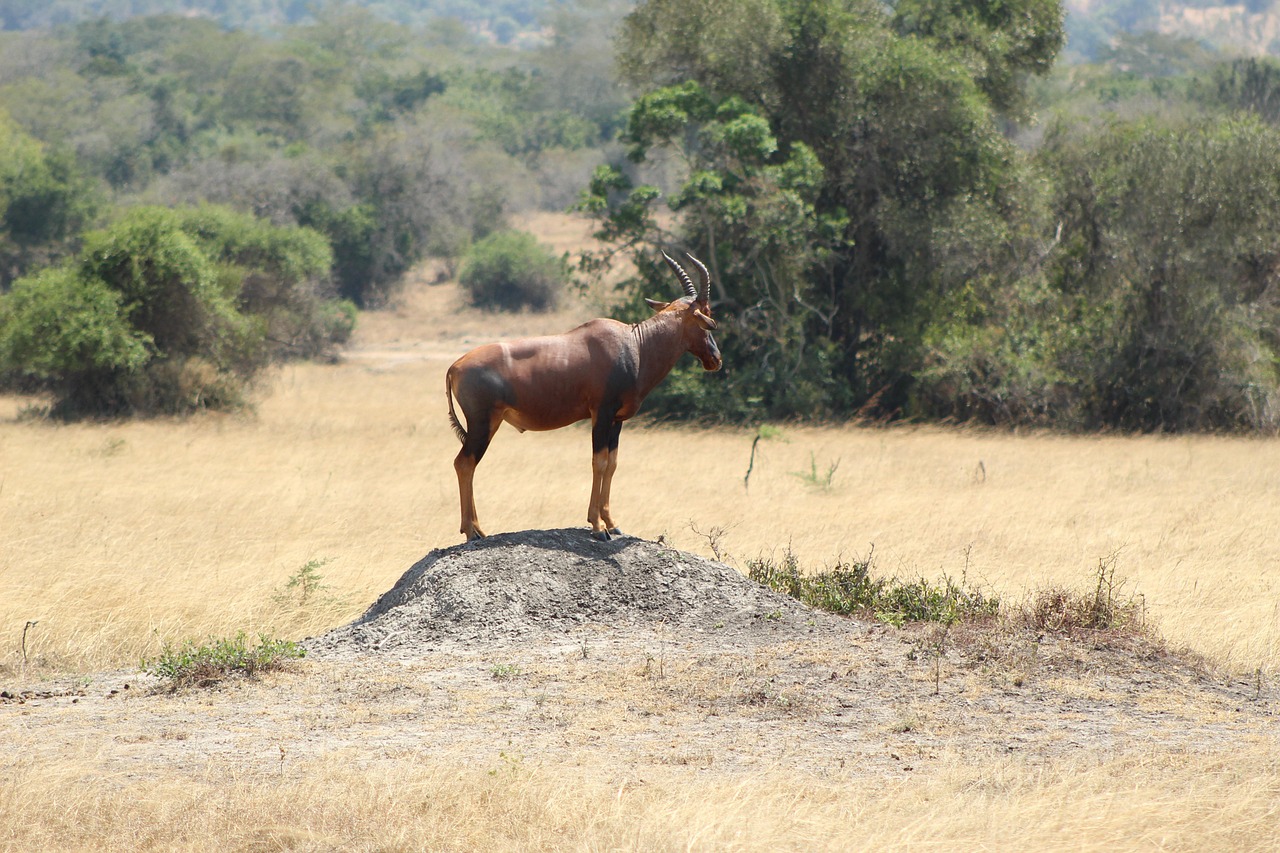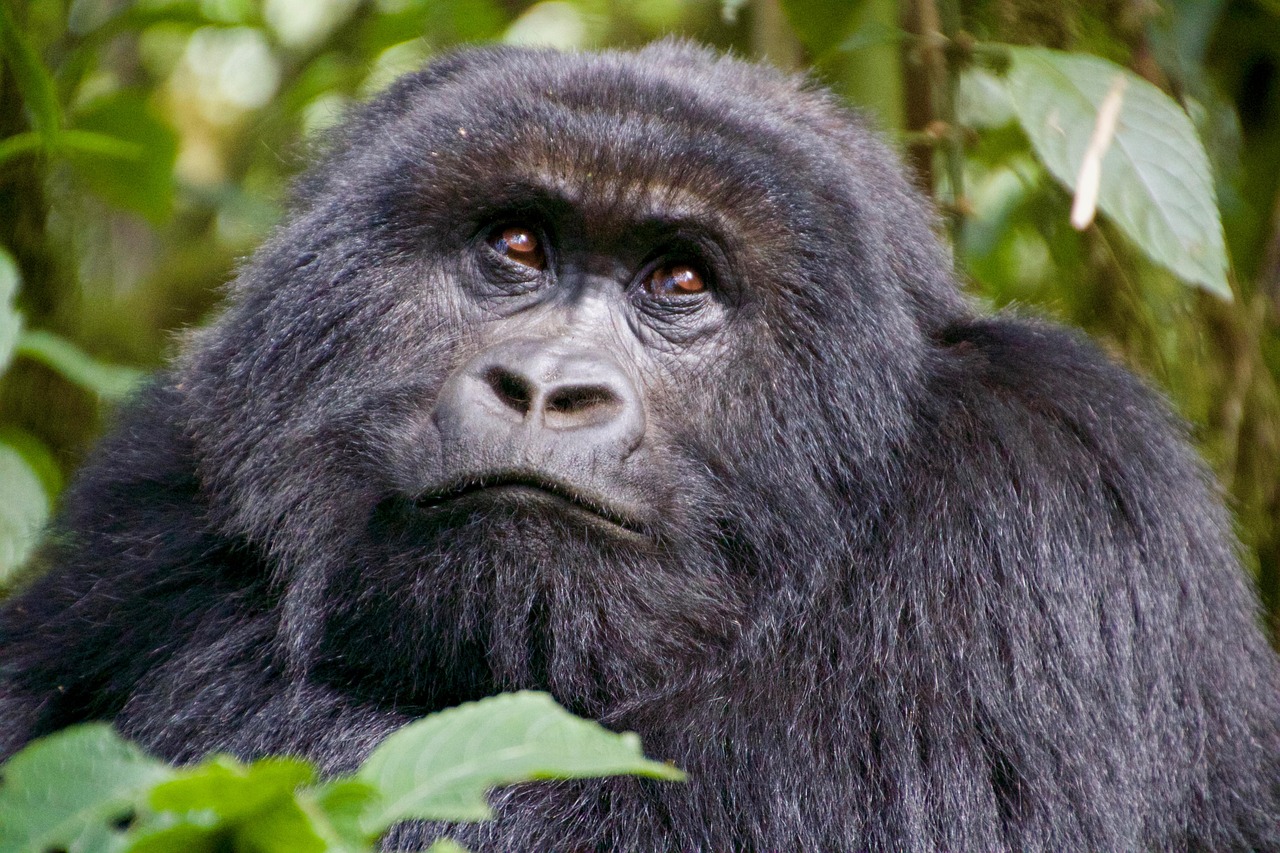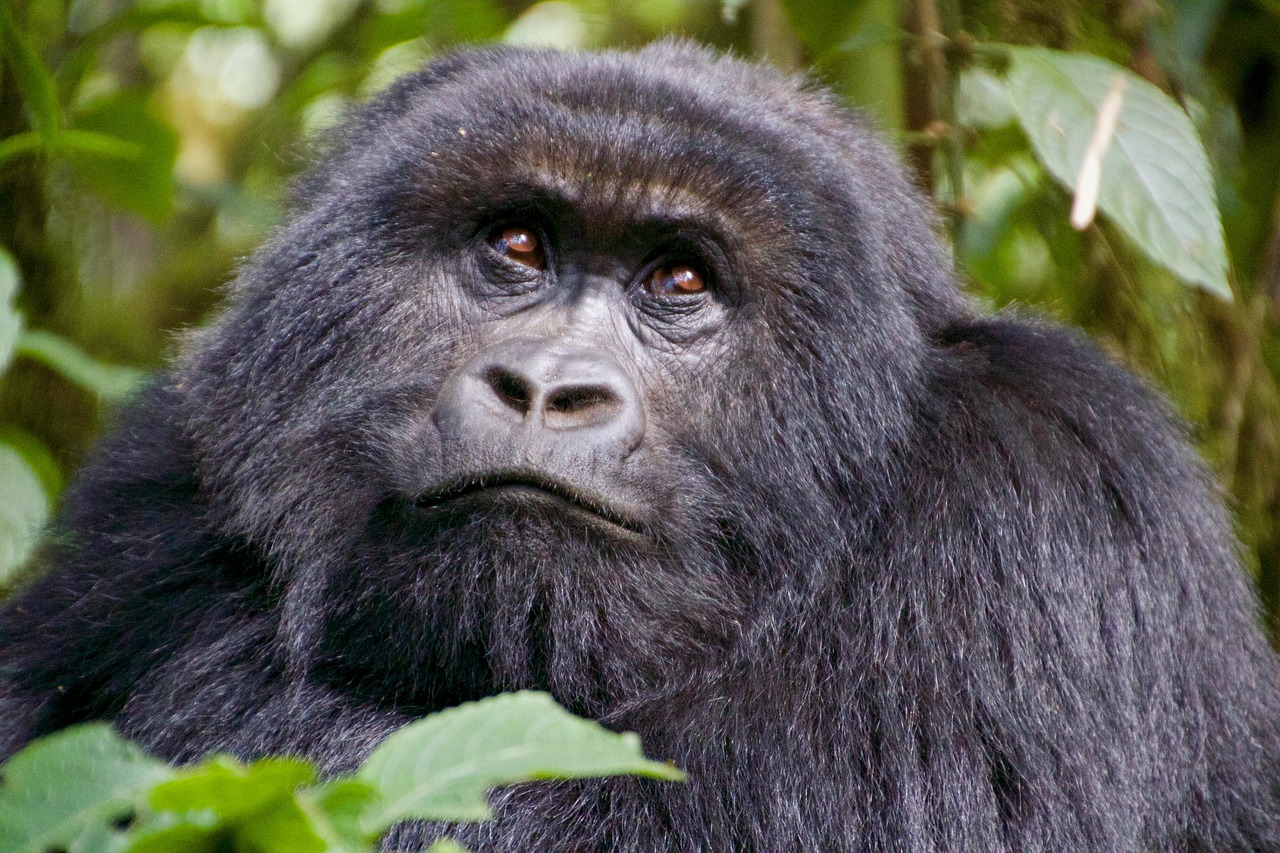
Rwanda
Everything you need to know about Rwanda. A complete travel guide.Rwanda
Overview
A Complete Travel Guide To Rwanda.
Everything you need to know before travelling to Rwanda for a safari.
Rwanda offers a compact safari in Volcanoes, Nyungwe and Akagera — gorilla trekking, rainforest chimpanzees and Big Five savanna species in one country, served by modern infrastructure and a conservation-driven ethos.
Explore Rwanda Below:
Explore other countries:
Continue your safari planning journey across Africa’s top countries.
Not sure if Rwanda is your perfect fit? Click below to explore and compare other safari countries.
Safety
Everything you need to know about safety in Rwanda
Rwanda is widely viewed as one of East Africa’s safest safari destinations. Low crime makes it easy to explore Kigali, other towns and national parks with confidence. Visitors are advised to exercise standard precautions, especially in urban areas when walking after dark, and to let park guides lead wildlife activities safely. Only border zones near the DRC (specifically sections of Rubavu and Rusizi districts) are officially designated “do not travel” areas. Outside those, you can enjoy cultural sites or gorilla trekking with peace of mind.
Expert tip: Sign up with your embassy, book gorilla treks through authorised operators, and stay at least 10 km away from the Rubavu and Rusizi border zone for your safety and comfort.
A Deeper Understanding Of Safety In Rwanda
Rwanda currently carries a Level 2 advisory (“Exercise increased caution”) from the U.S. State Department, primarily due to occasional armed spill-over across the border with the Democratic Republic of the Congo. These areas are clearly defined—mainly sectors of Rubavu and Rusizi districts—and media and embassy bulletins recommend avoiding them altogether.
Elsewhere, countries like Canada, Australia, and New Zealand assess Rwanda at Level 1, indicating that standard precautions are sufficient. This low threat level reflects a stable government, visible police patrols, strong urban planning, and one of the lowest homicide rates per capita in the region (around 2.5 per 100,000).
Wildlife areas are tightly managed for safety: Volcanoes National Park, which hosts nearly a third of the world’s mountain gorillas, is known as one of the most heavily patrolled parks globally. Daily visitor numbers are strictly limited, and all treks are conducted in groups led by rangers to minimise risks. In Nyungwe Forest and Akagera, well-trained guides accompany each nature walk or game drive, ensuring respect for wildlife boundaries.
General precautions are straightforward: secure personal items in reliable accommodation; avoid walking alone after dark in Kigali; and use only registered taxi services for night travel. While violent crime is nearly unheard of, petty theft such as bag-snatching can occur in busier districts—always stay vigilant and dress down valuables. Local emergency response is efficient in urban and park areas. For enhanced safety, it’s wise to travel with comprehensive insurance, listen to park briefings before gorilla encounters, and allow a little flexibility in your schedule in case security checkpoints are required.
VISA
Everything you need to know about visas for travel to Rwanda
Most travellers from outside the East African Community (EAC) require a visitor visa. A US$50 single‑entry visa for 30 days can be obtained on arrival or via e‑Visa. The East Africa Tourist Visa (US$100) offers 90-day multiple-entry access to Kenya, Uganda, and Rwanda.
Use the following links to see your visa requirements when travelling to Rwanda:
Expert tip: Apply for your visa directly through Rwanda’s official Irembo portal or get it on arrival—avoid third‑party services that charge extra or delay processing.
A Deeper Understanding Of Visa Requirements For Rwanda
Rwanda allows most visitors to obtain a single-entry visitor visa on arrival at Kigali International Airport or all land borders, or online via the official Irembo platform (US$50 for 30 days, or US$70 for multiple entries). Citizens of East African Community member states (Burundi, Kenya, Uganda, Tanzania and South Sudan) travel visa‑free for up to six months, and passport holders from African Union, Commonwealth, or La Francophonie countries qualify for a visa fee waiver on arrival (usually a 30‑day stay).
Combining visits across Rwanda, Kenya, and Uganda is easier using the East Africa Tourist Visa (EATV). This US$100 visa, available online, at Rwandan embassies, or on arrival, grants up to 90 days multiple entry across all three countries. Note this visa is not extendable or renewable.
Every visitor must hold a passport valid for at least six months with at least one blank page. Yellow fever vaccination is required if arriving from or transiting through a yellow fever country. Authorities no longer require COVID‑19 vaccination or PCR proof.
Suppose you need to stay longer than 30 days under a single-entry visa. In that case, extensions may be granted in exceptional cases via Rwanda’s immigration office. This option is not available for the EATV.
Always apply through government channels. Rwanda’s immigration authorities warn against unauthorised agents—they may charge more than the official fees of US$50 (single entry), US$70 (multiple entry) or US$100 (EATV)
Vaccinations
Vaccinations are needed to visit Rwanda.
Yellow fever vaccination is only required if entering Rwanda from a yellow‑fever‑risk country. Most travellers are advised to keep up with routine immunisations (MMR, DTP, polio) and take hepatitis A and typhoid vaccinations.
- Vaccinations Required: yellow fever (only if arriving from a country with risk transmission); routine immunisations (MMR, DTP/P, polio); hepatitis A, typhoid; rabies may be advised for extended stays or remote exposure.
- Use the following link to find vaccination information for Rwanda: https://skyteam.traveldoc.aero/
Expert tip: Plan your vaccines at least 4 weeks before travel—this allows time for immunity to develop and for spaced doses (like hepatitis A or rabies).
A Deeper Understanding Of Vaccination Requirements for Rwanda
Rwanda does not routinely require a yellow‑fever certificate unless you arrive from a WHO‑defined yellow‑fever endemic region; travellers from at‑risk countries must present proof of inoculation upon arrival.
Although not strictly required, the CDC recommends that all visitors to Rwanda be up to date on routine vaccinations, including measles‑mumps‑rubella (MMR), diphtheria‑tetanus‑pertussis (DTP), polio, influenza, and chicken‑pox. In addition, vaccinations for hepatitis A and typhoid are strongly advised—particularly if you're staying outside major cities or eating in local venues.
For those staying longer than a month, exploring rural areas, or doing conservation work or cycle tours, the rabies vaccine is worth considering, as pre‑exposure doses reduce risk and ease post‑exposure treatment. Visitors from regions where cholera or meningitis outbreaks occur may also benefit from specific vaccines, especially during dry‑season travel or school visits.
Though there is no malaria vaccine, chemoprophylaxis is advised for all travellers, alongside insect repellent and bed‑net use. Health precautions, such as avoiding untreated water and practising safe food and water handling, help reduce the risk of common illnesses like cholera and traveller's diarrhoea.
If you're uncertain about your immunisation status or managing multiple vaccines, consult a travel health clinic—they can tailor a plan based on your itinerary, age, and health history.
Weather and climate
Everything you need to know about weather and climate in Rwanda
At 15–18 °C nights and 24–27 °C days, central and eastern Rwanda enjoy a tropical highland climate with two rainy seasons (Mar–May, Sep–Dec) and a drier stretch from June to September—ideal for gorilla and wildlife safaris.
Seasonal Breakdown:
- Summer: June–September is generally dry across Rwanda—blue skies, warm days around 24–27 °C (75–81 °F), light afternoon showers are possible near Nyungwe and Volcanoes.
- Winter: December–February includes a short dry spell between the rains, with cooler cloud cover over highlands and moderate rainfall, especially in February.
Expert tip: Bring layered clothing and a waterproof day‑pack if travelling in March–May or October, especially for forest trekking in high-altitude parks like Nyungwe and Volcanoes.
A Deeper Understanding Of Weather And Climate In Rwanda
Rwanda’s climate is classified as tropical savanna (Aw) at its 1,500–1,700 m elevation, giving it cooler, more stable temperatures year-round and a distinct rainfall pattern. The long rains run from March through May, peaking in April; these are followed by a second rainy period from September to December. The central plateau (e.g., Kigali, Akagera) stays warmer than the mountain parks (Volcanoes, Nyungwe), where daytime highs often dip to 15–21 °C (59–70 °F). Rainfall is heavier at all times of year.
June to September marks the primary dry season in much of the country, offering clear skies, minimal rain, and excellent visibility for wildlife and gorilla treks—especially in Volcanoes (gorillas) and Akagera (savanna big‑game). Temperature drops after sunset, so layers for 15 °C night-time temperatures are recommended.
Cloud cover increases sharply during rainy months, reducing UV exposure even at altitude. Humidity is highest in April and November, which may impact comfort and visibility in forest trails.
Table representing weather and climate in Rwanda by month
| Month | Avg Low (°C/F) | Avg High (°C/F) | Precip (%) | Rainfall (mm/in) | Rainy Days | Humidity (%) | UV Index* |
|---|---|---|---|---|---|---|---|
| January | 15.3 °C (59.5 °F) | 26.0 °C (78.8 °F) | 8.5 % | 84 mm (3 in) | 12 | 71 % | 6 |
| February | 15.6 °C (60.1 °F) | 26.6 °C (79.9 °F) | 8.8 % | 87 mm (3 in) | 11 | 68 % | 6 |
| March | 15.5 °C (59.9 °F) | 25.9 °C (78.6 °F) | 11.4 % | 113 mm (4 in) | 16 | 74 % | 5 |
| April | 15.6 °C (60.0 °F) | 24.8 °C (76.6 °F) | 14.7 % | 146 mm (5.7 in) | 18 | 79 % | 4 |
| May | 15.5 °C (59.9 °F) | 24.7 °C (76.5 °F) | 9.3 % | 92 mm (3 in) | 12 | 72 % | 5 |
| June | 15.6 °C (60.1 °F) | 25.3 °C (77.5 °F) | 1.5 % | 15 mm (0.6 in) | 2 | 59 % | 7 |
| July | 16.0 °C (60.8 °F) | 26.3 °C (79.3 °F) | 0.5 % | 5 mm (0.2 in) | 1 | 48 % | 8 |
| August | 16.3 °C (61.3 °F) | 26.8 °C (80.2 °F) | 2.6 % | 26 mm (1 in) | 3 | 51 % | 8 |
| September | 15.7 °C (60.3 °F) | 26.7 °C (80.1 °F) | 6.0 % | 60 mm (2 in) | 8 | 62 % | 6 |
| October | 15.4 °C (59.7 °F) | 25.9 °C (78.6 °F) | 12.5 % | 124 mm (4 in) | 14 | 70 % | 5 |
| November | 14.8 °C (58.6 °F) | 25.0 °C (77.0 °F) | 13.8 % | 137 mm (5 in) | 17 | 77 % | 4 |
| December | 14.9 °C (58.8 °F) | 25.2 °C (77.4 °F) | 10.3 % | 102 mm (4 in) | 14 | 75 % | 5 |
When To Go
Everything you need to know about the best time to visit Rwanda:
When to go: June–September and December–February offer the clearest skies, excellent gorilla and wildlife viewing, and easier trails. The wetter months bring birdlife and lush scenery, but can limit accessibility.
Weather | Jan | Feb | March | Apr | May | Jun | Jul | Aug | Sep | Oct | Nov | Dec |
= Excellent = Good = Fair = Poor
- High season: June to September and December to February
- Low season: March to May and October to November
Expert tip: Book gorilla permits at least 7 months in advance for dry‑season travel (June–August), when availability fills up fastest.
A Deeper Understanding Of The Best Time To Visit Rwanda
Rwanda experiences two main dry seasons—June to September and December to February—when hiking trails are firm, skies are clearer, and mountain gorilla trekking and savanna safaris are at their most comfortable. These are also the peak travel periods, so lodge and permit prices can be highest and early booking is advised.
The long rains from March to May and the short rains in October and November often bring lush landscapes and active migratory birdlife, making these months ideal for birdwatching and photography in Nyungwe and Akagera National Parks. This is also when gorilla treks are less busy—a potential bonus if you can cope with muddy paths and occasional delays. Shoulder periods such as late May or early October may offer a balance of fewer crowds, good birding, and improving weather conditions.
| Month | Weather | Wildlife Viewing | Birdwatching | Temperature |
|---|---|---|---|---|
| January | ☀️ | ✅✅ | 🐦🐦 | ☀️ |
| February | 🌤️ | ✅✅ | 🐦🐦 | 🔥 |
| March | 🌧️ | ✅ | 🐦🐦🐦 | 🔥 |
| April | ⛈️ | ✅ | 🐦🐦🐦 | 🔥 |
| May | 🌧️ | ✅ | 🐦🐦 | ☀️ |
| June | ☀️ | ✅✅✅ | 🐦🐦 | 🔥 |
| July | ☀️ | ✅✅✅ | 🐦🐦 | 🔥 |
| August | ☀️ | ✅✅✅ | 🐦🐦 | ☀️ |
| September | 🌤️ | ✅✅ | 🐦🐦🐦 | ☀️ |
| October | 🌧️ | ✅ | 🐦🐦🐦 | ☀️ |
| November | 🌧️ | ✅ | 🐦🐦 | ☀️ |
| December | 🌤️ | ✅✅ | 🐦 | ☀️ |
Table Legend:
- Weather: ⛈️ Thunderstorms, 🌧️ Rain, 🌤️ Partly Cloudy, ☀️ Dry
- Wildlife Viewing: ✅ Average, ✅✅ Good, ✅✅✅ Great
- Birdwatching: 🐦 Average, 🐦🐦 Good, 🐦🐦🐦 Great
- Temperature: ❄️ Cold, ☀️ Warm, 🔥 Hot
Getting Here
Everything you need to know about getting to Rwanda:
Reaching Rwanda is straightforward by air via Kigali International Airport (KGL), offering direct flights from Europe, the Middle East, or regional connections via Nairobi or Addis Ababa. Overland access is available from Uganda or Burundi, but road transfers can be lengthy.
- Main point of entry to Rwanda: Kigali International Airport (Kanombe Airport, KGL)
- Effort to get to Rwanda: 🟡 Medium
- Effort getting around Rwanda: 🟢 Easy
- Best ways to get around Rwanda: 🚙 Transfers; 🚗 Self Drive
Expert tip: Arrange airport-to-lodge transfers before you travel—especially for remote parks. Such bookings are rechargeable via lodge, tour operator or car-rental services and can save you time on arrival.
A Deeper Understanding Of Getting To Rwanda
By Air
Rwanda's main gateway is Kigali International Airport (KGL), served by multiple carriers including RwandAir, Kenya Airways, Brussels Airlines and Qatar Airways, linking directly to at least 25 destinations across Europe, Africa and the Middle East. Most long-haul travellers connect via regional hubs like Nairobi or Addis Ababa, with regular onward flights to Kigali. Currently, there are no direct flights from North or South America, Asia or Oceania—so one-stop connections are typical.
By Road
Overland routes into Rwanda are well-used but less efficient: from Uganda, the 24-hour Gatuna–Katuna border crossing (80 km north of Kigali) is reliable and busy with passenger buses; a VIP bus from Kampala takes around 13 hours to Kigali via this route. There's no direct border crossing from Kenya—you must pass via Uganda. From Burundi, several border posts operate, though some crossings can be slower. Roads within Rwanda are generally smooth and well-signed. Still, the terrain is hilly and rural travel can be slower, particularly in the rainy season.
Transfers and Accessibility
Most travellers arrive in Kigali and take a private transfer or lodge shuttle to their safari destination. It's about 1½–2 hours north to Volcanoes National Park, or 2½ hours east to Akagera National Park, depending on traffic. Renting a car (sedan or 4×4) is a popular option; self-driving is legal and straightforward on Rwanda's paved road network. For speed and comfort, Akagera Aviation offers charter helicopter transfers from Kigali to remote areas like Volcanoes, Nyungwe or Akagera—typically under an hour but at a premium cost.
Why Visit
This is why you should visit Rwanda:
Rwanda is a compact safari destination offering mountain gorilla trekking in Volcanoes National Park, chimpanzees and rare primates in Nyungwe Forest, and Big Five game drives in Akagera National Park. Ethical tourism, well‑maintained roads, and short transfers between regions mean you can experience the country’s highlights in just a week.
Expert tip: Combine a gorilla trek with a peaceful stay on Lake Kivu’s shores for a scenic contrast between primate adventures and lakeside relaxation.
A Deeper Understanding Of Why You Should Visit Rwanda
Despite its small size, Rwanda offers diverse safari experiences within reach. From Volcanoes to Nyungwe and Akagera, each wildlife area supports robust conservation success, with visits funding both habitat protection and local community development. The country’s stable governance, low tourism density, and improving infrastructure give visitors access to well‑managed parks, comfortable lodges, and up-close wildlife encounters.
Gorilla trekking in Volcanoes National Park
Home to nearly one‑third of the world’s endangered mountain gorillas, Volcanoes NP offers intimate, group‑limited trekking in the Virunga massif. Permits are controlled to guarantee an informative and ethical encounter with habituated gorilla families.
Primate rainforest & canopy walk in Nyungwe National Park
Nyungwe protects one of Africa’s oldest montane rainforests, with 13 primate species (including chimpanzees and colobus), 322 resident bird species (with many Albertine Rift endemics), and East Africa’s only tree‑top canopy walkway.
Savanna safari & Big Five game drive in Akagera National Park
Akagera combines savanna, wetlands and lakes to support lions, elephants, rhinos, buffalo and leopards in a compact, regenerating landscape. A game drive or lake boat trip offers sightings and birdwatching in a low‑density setting.
Activities
Everything you need to know about safari activities in Rwanda:
Enjoy game drives in Akagera with lion, rhino and hippo sightings, gorilla and golden‑monkey trekking in Volcanoes, plus chimpanzee treks and Nyungwe’s canopy walk overlooking rainforest.
Expert tip: Book a night game drive in Akagera to spot nocturnal species, and choose a lodge offering combined tracking, boating and walking safaris.
Explore activities available in Rwanda:
Birds
Everything you need to know about birdlife in Rwanda
Rwanda is home to over 700 bird species, including 27 Albertine Rift endemics like the Rwenzori Turaco, Grauer’s Swamp Warbler, and Handsome Francolin. Wetlands in Akagera may reveal the elusive shoebill. At the same time, Nyungwe Forest excels in forest specialists and canopy species like the Great Blue Turaco.
Birding | Jan | Feb | March | Apr | May | Jun | Jul | Aug | Sep | Oct | Nov | Dec |
= Excellent = Good = Fair = Poor
- Birds in Rwanda: Rwenzori Turaco, Shoebill Stork, Papyrus Gonolek, Grauer’s Swamp Warbler, Collared Apalis, Handsome Francolin, African Fish Eagle, Great Blue Turaco, Kivu Ground Thrush, Red‑faced Woodland Warbler, Regal Sunbird
- Best months for birding: March, April, October, November, December, January, February
Expert tip: Arrive early morning at Akagera or Nyungwe during wetter months for prime bird activity—with light levels improving visibility, papyrus swamps awaken migrant species, and Albertine endemics sing throughout the canopy. Explore birds in Rwanda.
Wildlife
Everything you need to know about wildlife in Rwanda
Rwanda is famed for its mountain gorillas in Volcanoes, over 500 wild chimpanzees in Nyungwe, and a regenerating Big Five savanna ecosystem including elephant, lion, leopard, and black rhino in Akagera—delivering both rare primates and classic safari mammals 🐾.
Wildlife | Jan | Feb | March | Apr | May | Jun | Jul | Aug | Sep | Oct | Nov | Dec |
= Excellent = Good = Fair = Poor
- Best months for wildlife viewing in Rwanda: June to September and December
Expert tip: Select a lodge or tour combining gorilla trekking in Volcanoes with game drives in Akagera for a seamless contrast between primate-rich forests and Big Five plains.
Explore wildlife in Rwanda:
A Deeper Understanding Of Wildlife In Rwanda
Rwanda supports an uncommon concentration of primate diversity, including critically endangered mountain gorillas (about 1,063 across Rwanda, Uganda and DRC) seen reliably on organised treks, and around 500 chimpanzees in well-structured trekking groups in Nyungwe Forest.
Akagera National Park now hosts the Big Five through successful wildlife reintroductions, including lion, elephant, buffalo, black rhino (28 individuals as of 2023), and leopard, enabled by robust anti‑poaching management.
Wildlife density concentrates around rivers and watering holes during the dry season, especially in June–September, when viewing improves across plains and forest fringes. Predators such as spotted hyena and leopard roam more widely. At the same time, rare species like serval or caracal appear only sporadically on trail camera arrays in Nyungwe and Akagera. Akagera also supports diverse antelope species (eland, roan, waterbuck, sitatunga) and aquatic mammals like hippo, which thrive along lakes and wetlands.
Rwanda’s compact geography lets you combine gorilla trekking, rainforest primate walks, and big game drives in a 7-day itinerary with minimal drives and maximum diversity.
Table showing wildlife occurrence in Rwanda.
Legend (read horizontally): 🔵 Plentiful 🟢 Common 🟡 Uncommon 🔴 Sporadic ⚫ Non-occurring
| Species | Frequency |
|---|---|
| Lion | 🟢 |
| Leopard | 🟢 |
| Cheetah | ⚫ |
| Spotted Hyena | 🟢 |
| Brown Hyena | ⚫ |
| Striped Hyena | ⚫ |
| Black‑backed Jackal | ⚫ |
| Side‑striped Jackal | ⚫ |
| Caracal | 🟡 |
| Serval | 🟡 |
| African Wild Cat | 🟡 |
| African Wild Dog | ⚫ |
| Aardwolf | ⚫ |
| White Rhino | ⚫ |
| Black Rhino | 🟡 |
| Elephant | 🟢 |
| Buffalo | 🟢 |
| Giraffe | 🟢 |
| Hippo | 🟢 |
| Zebra | 🟢 |
| Blue Wildebeest | 🟡 |
| Black Wildebeest | ⚫ |
| Sable | ⚫ |
| Roan | 🟡 |
| Eland | 🟡 |
| Oryx | ⚫ |
| Kudu | ⚫ |
| Waterbuck | 🟢 |
| Lechwe | 🟡 |
| Sitatunga | 🟡 |
| Aardvark | 🟡 |
| Pangolin | 🟡 |
| Mountain Gorilla | 🟢 |
| Chimpanzee | 🟢 |
Where To Go
Everything you need to know about parks and reserves in Rwanda
Rwanda features government‑run national parks and private rainforest concessions, each offering distinct safari styles. Volcanoes National Park and Nyungwe National Park deliver well‑organised, iconic wildlife experiences. Meanwhile, private reserves such as Bisate Lodge Private Reserve offer exclusive experiences, luxury lodges, and off‑road flexibility for a more tailored visit.
Best Parks, Reserves and Concessions in Rwanda:
- 🥇 Volcanoes National Park
- 🥈 Nyungwe National Park
- 🥉 Bisate Lodge Private Reserve
Expert tip: When trekking gorillas, stay within the private concession for more personalised access, early start times, and smaller guest numbers — especially at Bisate Lodge or similar properties.
Explore Rwanda Parks, Reserves and Concessions Below:
A Deeper Understanding Of Parks And Reserves In Rwanda
Rwanda’s safari network is rooted in two government‑managed national parks, each favoured for its structured access, clear rules, and broad visitor infrastructure. Volcanoes National Park is world‑renowned for mountain gorilla trekking and golden‑monkey hikes (it protects about half of the global gorilla population as well as the Virunga volcano massif). Nyungwe National Park, covering over 1,000 km² of high-altitude rainforest, supports 13 primate species—including chimpanzees—and is a prime destination for rainforest wildlife tours.
By contrast, private reserves such as Bisate Lodge Private Reserve sit on concession land adjacent to Volcanoes National Park, providing access with greater privacy, flexible activity scheduling, private dining and guides, and exclusive forest trails. These areas allow off‑road walking or logging paths, which are not permitted in park zones — making them ideal for guests prioritising exclusivity or celebrating an occasion. In both parks, game drives are not possible; all wildlife encounters are on foot, in contrast to surrounding savanna regions.
National parks offer affordable, highly regulated access, well‑marked trails, and a community of trekkers all following the same set routes. Private reserves, on the other hand, cater to travellers seeking intimate engagement with the forest, luxury lodge amenities, smaller group sizes, and more flexible timing.
Each of these areas offers a uniquely valuable experience:
– Volcanoes National Park for landmark trekking networks and conservation success stories,
– Nyungwe National Park for its world‑class chimpanzee and biodiversity tours,
– Bisate Lodge Private Reserve for a curated, secluded rainforest stay with direct gorilla access.
Regions
Everything you need to know about safari regions in Rwanda
Rwanda’s safari regions—Volcanoes Safari Region and Nyungwe & Cyamudongo Forest Safari Region—are country‑wide designations that encompass parks, forests and concessions. Understanding regions helps you plan for exclusive lodges, off‑road flexibility or rigid trail access in national parks.
Best regions in Rwanda:
- 🥇 Volcanoes Safari Region
- 🥈 Nyungwe & Cyamudongo Forest Safari Region
Expert tip: When choosing your itinerary, verify if your lodge sits within a private concession or inside the national park boundaries—this affects access rules like early gorilla starts or canopy walks.
Explore Rwanda safari regions below:
A Deeper Understanding of Safari Regions in Rwanda
The Volcanoes Safari Region includes Volcanoes National Park along the Virunga chain—the world’s most protected gorilla territory—as well as adjacent private concessions offering luxury lodges and guided treks. Here, all wildlife viewing is on foot in forest terrain, and off‑road flexibility depends on your lodge's authority.
The Nyungwe & Cyamudongo Forest Safari Region hosts Nyungwe National Park, East Africa’s largest montane rainforest. It’s home to 13 primate species, scenic trails, waterfalls and East Africa’s only canopy walk—making it popular for guided chimp and colobus treks. Private lodges around Nyungwe can offer guided walks off public trails.
Both regions illustrate Rwanda’s emphasis on structured conservation and luxurious, sustainable tourism—a model embraced by government and operators that prioritise community reinvestment and visitor impact.
Pros & Cons
The pros and cons of a safari to Rwanda
| Pros | Cons |
|---|---|
| ✅ High chance of gorilla encounters: Controlled permits and accessible terrain in Volcanoes NP support reliable sightings and easier treks, even for older or less fit travellers | ⭕ Premium cost structure: With ≈ $1,500 per-person gorilla permits, plus luxury lodge pricing and limited economy options, Rwanda ranks among Africa’s most expensive safari destinations |
| ✅ Compact itinerary, diverse wildlife: In a well-connected circuit, visitors can combine gorilla trekking, chimpanzee tracking and Big Five game drives within a week | ⭕ Limited large‑game variety: There’s no great wildebeest migration or Serengeti-scale herds; sightings of plains game and predators are smaller and more dispersed |
| ✅ Reintroduced Big Five with exclusive game viewing: Akagera NP now supports restored populations of lions, rhinos, elephants, buffalo and leopards—often seen in smaller, less crowded settings | ⭕ Trekking fitness requirements: Gorilla hikes take place at altitude over steep, uneven forest terrain and may challenge those with limited mobility—even during the drier months |
| ✅ Modern infrastructure, cleanliness & safety: Rwanda’s roads, public spaces and facilities are well-maintained and secure, easing logistics and driving confidence across guest types | ⭕ Rainy-season access challenges: March–May and October–November bring muddy trails, occasional road closures, and limp wildlife visibility in wetter forests and savannas |
| ✅ Tourism directly supports conservation & community: A fixed portion of gorilla permit fees funds schools, water, health clinics and habitat protection in neighbouring communities | ⭕ Controlled access may feel overly formal: Strict booking policies, such as fixed trekking schedules and group sizes, can feel regimented compared with wilder, self‑driven safari destinations |
| ✅ Luxury lodges and exclusive private concessions: Properties like Bisate Lodge offer personalised service, flexible trekking start times and fewer guests per guide |
Expert tip: Book your mountain gorilla permits 6–9 months in advance, and ask whether your lodge is within a private concession in Volcanoes NP—for smaller trekking groups and more flexible timing.






